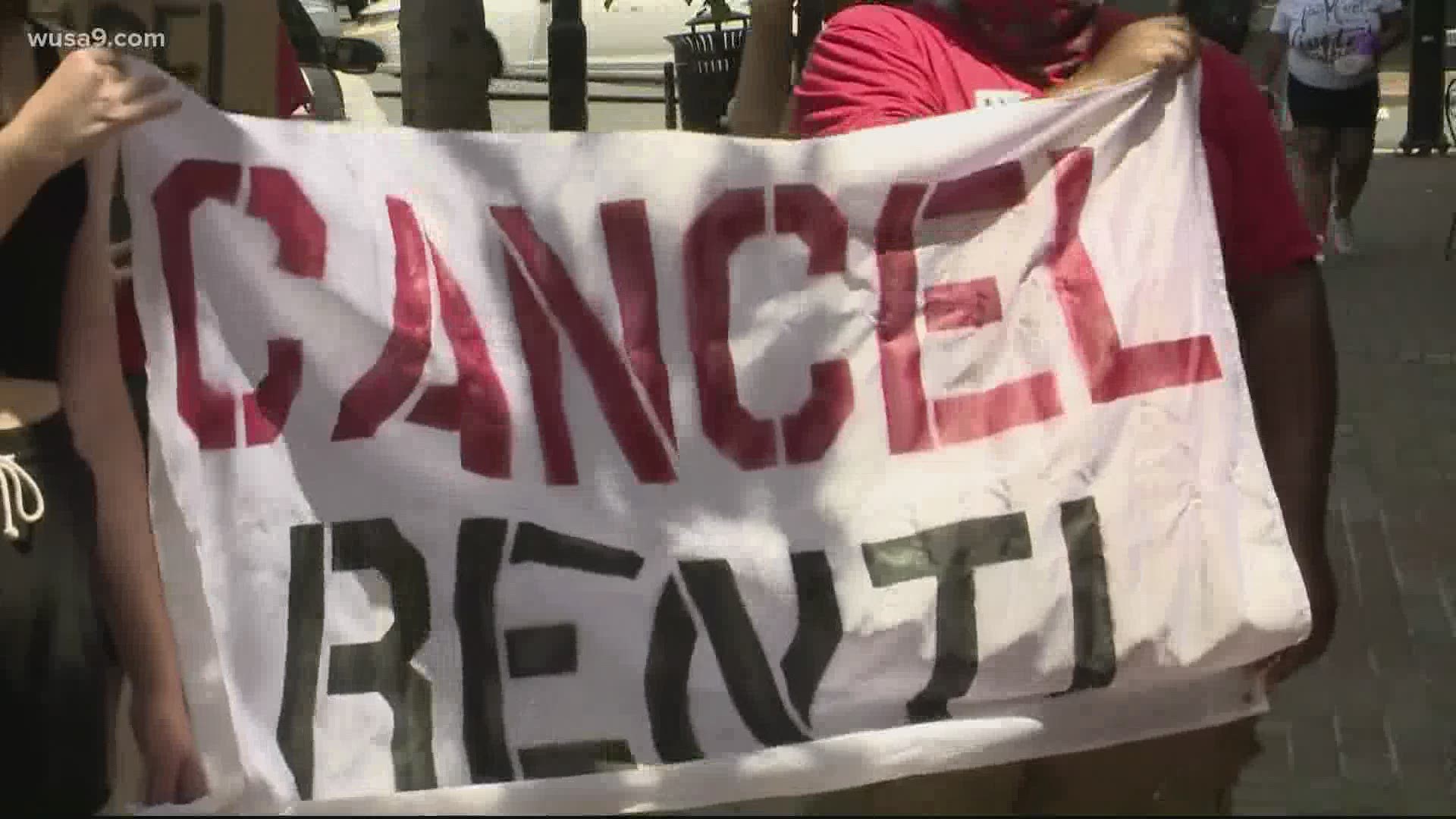WASHINGTON — A federal freeze on most evictions enacted last year is scheduled to expire July 31, after the Biden administration extended the date by a month. The moratorium, put in place by the Centers for Disease Control and Prevention in September, was the only tool keeping millions of tenants in their homes. Many of them lost jobs during the coronavirus pandemic and had fallen months behind on their rent.
Landlords successfully challenged the order in court, arguing they also had bills to pay. They pointed out that tenants could access more than $45 billion in federal money set aside to help pay rents and related expenses.
Advocates for tenants say the distribution of the money has been slow and that more time is needed to distribute it and repay landlords. Without an extension, they feared a spike in evictions and lawsuits seeking to boot out tenants who are behind on their rents.
As of June 7, roughly 3.2 million people in the U.S. said they face eviction in the next two months, according to the U.S. Census Bureau’s Household Pulse Survey. The survey measures the social and economic effects of the coronavirus pandemic every two weeks through online responses from a representative sample of U.S. households.
Here’s the situation in Washington, D.C.:
WHAT’S THE STATUS OF EVICTION MORATORIUMS IN THE DISTRICT OF COLUMBIA?
Washington, D.C., has its own local ban on evictions, imposed by the District of Columbia Council in March 2020. The city's moratorium is tied to the public health emergency declared by Mayor Muriel Bowser, which is set to expire on July 25, about a week before the national eviction moratorium ends.
WHAT’S BEING DONE TO HELP PEOPLE FACING EVICTION?
In April, Bowser devoted $350 million in federal aid to help qualifying tenants pay overdue rent and utility bills. But some members of the D.C. Council have complained that not enough people are taking advantage of the program because the eviction ban was removing any sense of urgency. In May, the council briefly considered allowing eviction filings again to prompt tenants and landlords to take advantage of the aid, but the idea was voted down amid public criticism.
HOW ARE THE COURTS HANDLING EVICTION HEARINGS?
Landlords in the district are prohibited from filing for eviction for non-payment. A group of landlords had sued to be permitted to start eviction proceedings that wouldn't be carried out until after the ban was lifted. The case remains tied up in court.
HOW AFFORDABLE IS HOUSING IN THE DISTRICT'S RENTAL MARKET?
Affordable housing is a major problem in Washington, D.C., with rents rising as the city has become wealthier in recent years. Many Black tenants complain of being displaced by rapid gentrification. The district has long been majority Black, but that population has dropped below 50%.
Washington received more than $2.3 billion in federal funding from the American Rescue Plan, and Bowser devoted more than $500 million to a variety of programs to build more affordable housing or refurbish existing housing.
ARE EVICTIONS EXPECTED TO CREATE A SURGE IN HOMELESSNESS?
According to the National Council for State Housing Agencies, tenants in Washington, D.C., owed between $66 million and $119 million in back rent as of January. The group estimated that at as many as 15,000 district residents are in danger of eviction when the ban ends.
But Bowser and the council seem intent on avoiding a surge of people losing their homes, repeatedly siding with tenants. The district’s budget is flush with federal assistance money, and a city task force has recommended that a gradual “phased end” to the eviction ban be devised when the time comes.


